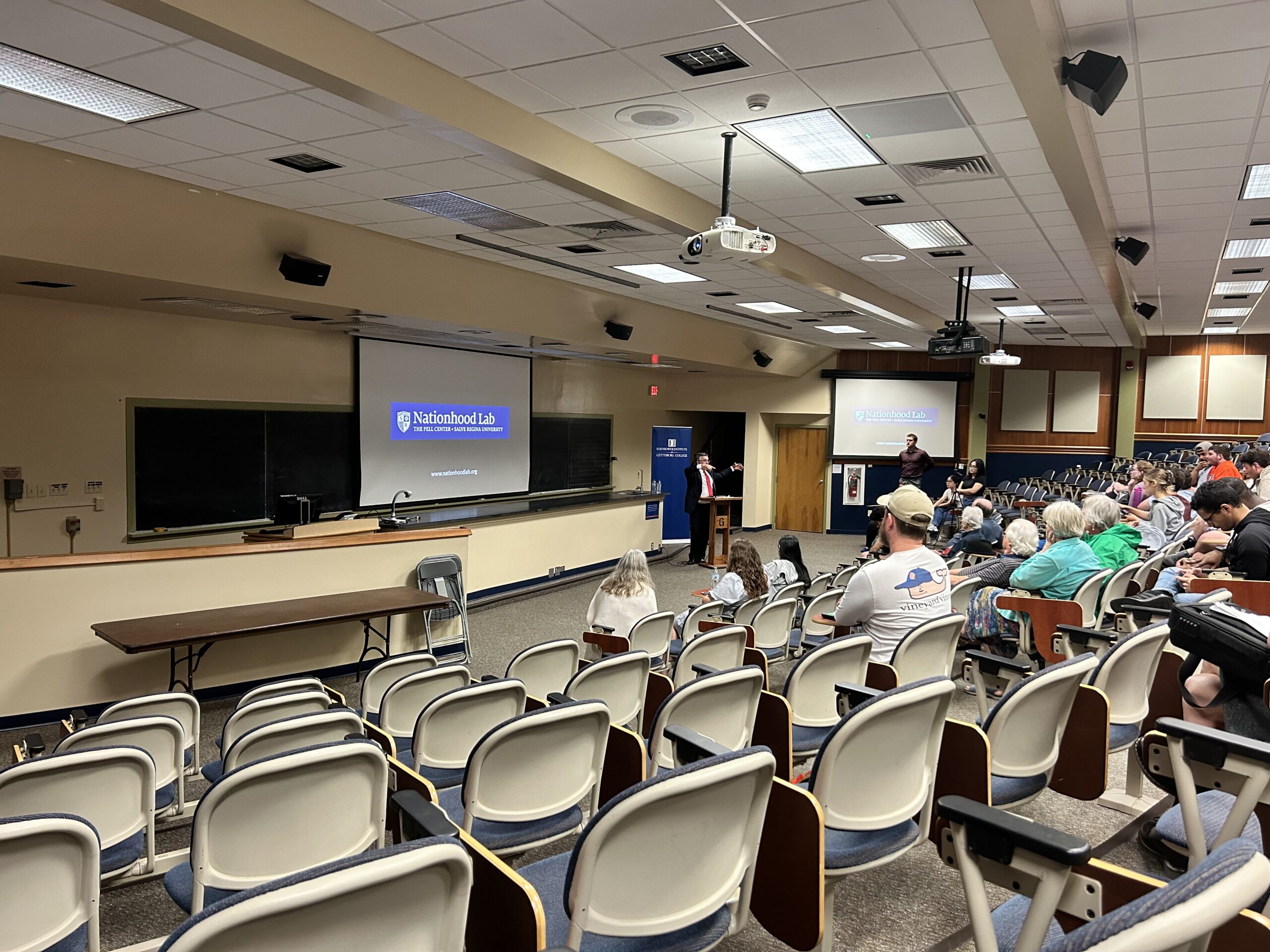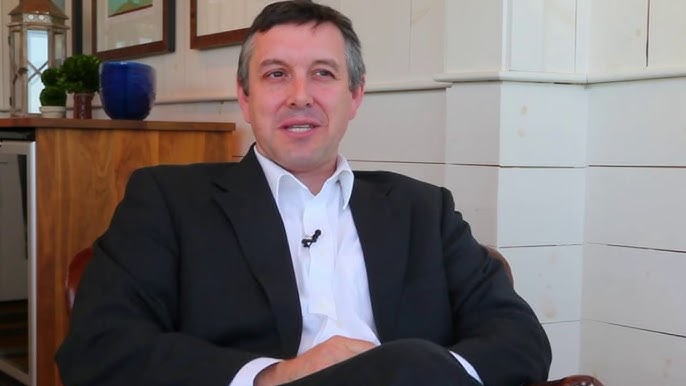
Colin Woodward giving a lecture for Democracy Week. (John Towey/The Gettysburgian)
By John Towey, Contributing Writer
Gettysburg College was visited by New York Times bestselling author and director of the Nationhood Lab at Salve Regina University Colin Woodard, who gave a lecture as part of the Eisenhower Institute’s annual Democracy Week programming and as part of the Conversations for Change initiative.
His lecture, “Why is U.S. Democracy in Crisis?: How We Got Here, Why We’re Vulnerable and What We Can Do About It,” focused on America’s current state division in its historical context. The lecture was held in the Mara Auditorium on Wednesday, Sept. 19 at 7:00 p.m.
Woodard described America as “a collection of stateless nations, each with their own intents, ideals, and story of national purpose.” He argued that these regional cultures shape politics and society as a whole.
He explained that America did not have a national identity for much of its history. He mentioned the ethnonationalism that peaked in the early twentieth century with immigration quotas and President Woodrow Wilson’s segregation of the federal government.
Developments in the 1960s such as the civil rights movement, Woodard explained, countered ethnonationalism and led to the rise of civic national ideals like equality and justice. This, he argues, is when America truly became a liberal democracy.
Concerning America’s national identity, he said, “We’re perfecting that story right now, a story of pride and reckoning, of an effort to create a society where all people could be meaningfully free.”
Woodard also introduced a new poll about America’s national identity that offered statement pairs about national identity with one set based on the civic ideals in the Declaration of Independence, and the other focused on values like shared heritage. The poll concluded that 63% of Americans support civic national ideals instead of ethno-nationalism.
He concluded by taking questions on all topics ranging from the recent Trump v. United States Supreme Court decision to shifts within the political parties.
Conversations for Change’s next scheduled speaker is Roger Worthington, who will deliver a lecture titled “Navigating the Culture of Division: Difficult Dialogues Teaching and Learning as Pathways Toward Understanding and Leadership” on Nov. 15 at 12:00 p.m. in the CUB.

Journalist Colin Woodward spoke at Gettysburg College for the Eisenhower Institute’s Democracy Week. (Photo courtesy Eisenhower Institute)

September 19, 2024
America was founded on the principle of “One citizen, One Vote, although at the founding, it may well have been phrased as “One Man, One Vote”! However, we have amended our Constitution to recognize the God-given rights of all citizens, regardless of gender, and therefore, all CITIZENS are recognized as eligible voters, but voting is not mandatory, merely a constitutional privilege granted to all CITIZENS! One of our governments’ greatest responsibilities is to protect th right to vote to all CITIZENS and to rigorously prevent all non-citizens from even attempting to cast votes in any US elections, local, county, state or federal. And correspondingly, to also secure all borders on land, at the coasts and via airborne intrusion as well, since it was regrettably demonstrated on 9/11/2001 how vulnerable our nation has been to infiltration by foreign terrorists and the resultant destruction of extensive property and thousands of lives as well. If any politician is seeking office herein and is not dedicated to protection of these principles, they should be stricken from all ballots.